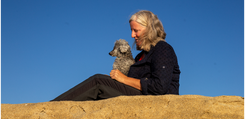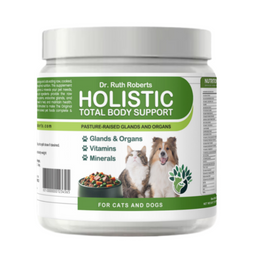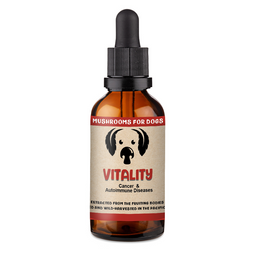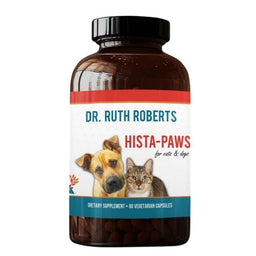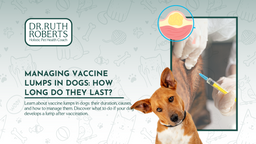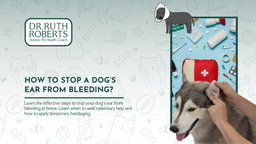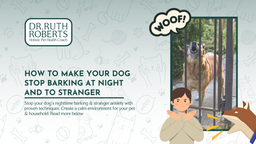Ever noticed a little bump at the injection site after your dog gets their vaccinations? No need to worry, this is a common occurrence for many dogs called a vaccine lump. These lumps often appear soon after vaccination and typically resolve on their own without any intervention. Let's learn more what these lumps are and why they happen!
What Causes Vaccine Lumps in Dogs?
Those little bumps that sometimes appear after your dog's vaccination aren't a cause for alarm. They're actually a sign of your furry friend's amazing immune system working hard!
Vaccines contain weakened or inactive pieces of viruses or bacteria, called antigens. When injected, these antigens trigger an immune response in your dog's body. White blood cells, the body's soldiers against infection, rush to the injection site to investigate and build defenses against the perceived threat. This localized activity can cause a small, firm bump to form – that's the vaccine lump.
Think of it like a training exercise! The vaccine simulates an attack, and your dog's immune system practices its response. In most cases, the lump is a harmless side effect and indicates a healthy immune response. It's the body's way of saying, "We got this!"
How to Identify a Lump Caused by a Vaccine
Vaccine lumps are usually nothing to worry about, but it's helpful to know what they look and feel like so you can distinguish them from anything more serious. Here's a breakdown of their typical appearance:

These are just general characteristics. If you notice anything significantly different, like a much larger bump, intense redness, or signs of discomfort in your dog, consult your veterinarian for guidance.
How Long Do Vaccine Lumps Last?
Vaccine lumps, fortunately, are usually temporary and tend to resolve without requiring any specific treatment. The duration of these lumps can vary depending on several factors. Firstly, the type of vaccine administered plays a significant role in how the body reacts. Different vaccines contain specific components that can trigger varying responses from the immune system, affecting the duration of the lump's presence. Additionally, the individual dog's immune system plays a crucial role.
Each dog's immune system is unique, leading to variations in how they respond to vaccination. While most vaccine lumps disappear within a few days, especially for mild reactions, some may persist for up to a couple of weeks before completely resolving. It's essential for pet owners to monitor the lump's progress and consult a veterinarian if there are any concerns about its duration or severity.
If the lump persists for longer than a month, it's best to consult your veterinarian. They can rule out any other potential causes and ensure everything is healing normally.
Keeping an Eye on Vaccine Lumps: Monitoring and Care
While vaccine lumps are usually harmless, it's important to monitor them for any changes. Here's what you can do:
MONITORING
-
Gently observe and feel the lump occasionally to check for changes in size, texture, or pain.
-
Look for sign of infection such as redness, swelling, pus, or warmth around the lump
-
Notice any changes in behavior like lethargy, fever, or loss of appetite, which might signal a more serious issue.
WHEN TO CALL THE VET
If you observe any of the following, consult your veterinarian for guidance:
- The lump persists for longer than a month.
- The lump becomes significantly larger (larger than a quarter).
- The lump appears red, swollen, or feels hot to the touch.
- Your dog seems uncomfortable or in pain around the lump.
- You notice signs of infection.
KEEPING YOUR DOG COMFORTABLE
Here are some tips to help your dog feel comfortable while the lump resolves:
- Avoid Touching or Squeezing: Leave the lump alone to prevent irritation.
- Offer Comfort: Gentle petting and cuddles can help your dog relax, but avoid putting pressure on the injection site.
- Monitor Activity: If your dog seems sore, limit strenuous activity until the lump feels better.
Remember, vaccination is crucial for your dog's health. These temporary lumps are a small price to pay for long-term protection against serious diseases. If you have any concerns, don't hesitate to reach out to your veterinarian for personalized advice.
Detoxification: How Thuja Can Help

While the vaccine lump itself doesn't require treatment, some pet owners choose to support their dog's overall well-being after vaccination with natural remedies like Thuja. Thuja is often selected in homeopathy due to its historical use for various ailments. In homeopathy, it's thought to treat conditions that arise as a result of what practitioners call "vaccine injury." The theory is that Thuja can help clear out the so-called toxins left by vaccines.
Some holistic veterinarians might recommend Thuja as part of a treatment regimen based on a holistic assessment of the pet’s health. These recommendations are typically grounded in a philosophy that prioritizes natural remedies and individualized treatment plans, which may not always align with conventional veterinary practices.
HOW TO USE THUJA SAFELY
While Thuja can offer health benefits, it's essential to use it safely and under veterinary guidance, especially for pets with underlying health conditions or those on medication. Here are some key points to consider:
Before using Thuja, consult your veterinarian to discuss its suitability for your pet. Some pet owners have reported positive experiences using Thuja alongside veterinary guidance. If your veterinarian approves Thuja for your pet, be sure to follow their specific dosage instructions.
Final Thoughts
Vaccine lumps in dogs are generally harmless and part of the body's natural immune response to vaccination. While they typically resolve on their own without treatment, monitoring for any changes and consulting your veterinarian if needed is important for your dog's well-being. Additionally, consider natural remedies like Thuja for detoxification, but always ensure to use such remedies under veterinary guidance for optimal safety and efficacy. Remember, vaccinations are essential for keeping your dog healthy, so it's best to follow your vet's advice or a certified holistic pet health coach and seek their help if you have any concerns.



